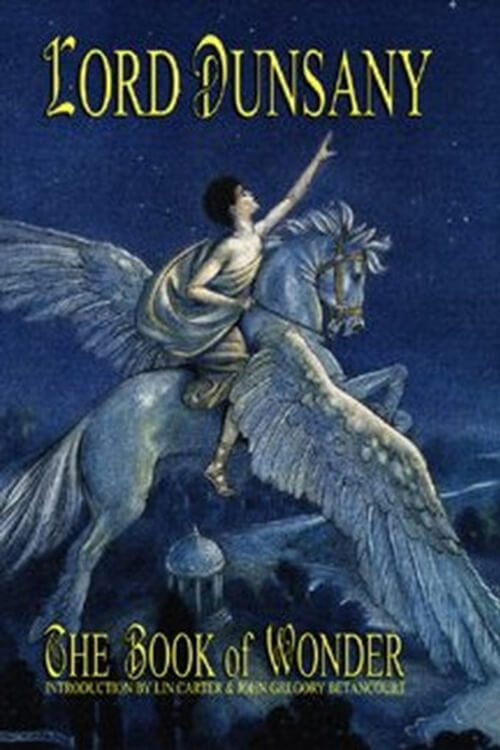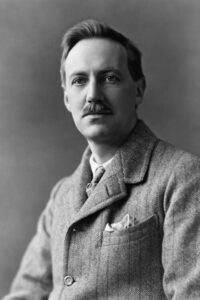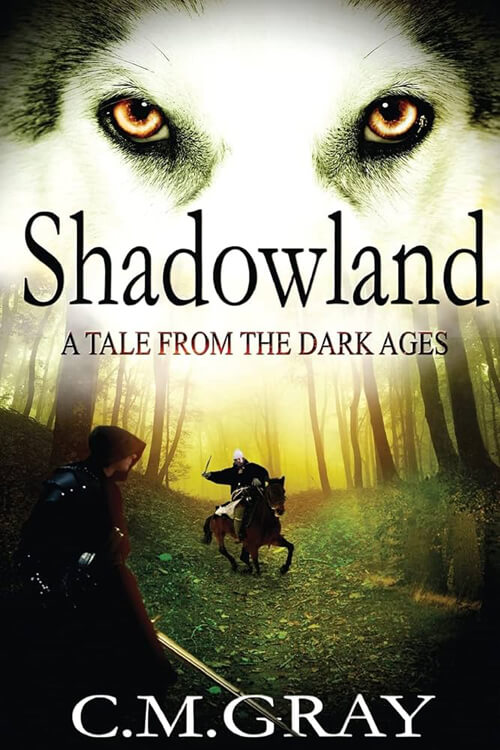
The Book of Wonder
When I came to the House of the Sphinx it was already dark. They made me eagerly welcome. And I, despite the deed, was glad of any shelter from that ominous wood. I saw at once that there had been a deed, although a cloak did all that a cloak may do to conceal it. The mere uneasiness of the welcome made me suspect that cloak.
The Sphinx was moody and silent. I had not come to pry into the secrets of Eternity nor to investigate the Sphinx’s private life, and so had little to say and few questions to ask; but to whatever I did say she remained morosely indifferent. It was clear that either she suspected me of being in search of the secrets of one of her gods, or of being boldly inquisitive about her traffic with Time, or else she was darkly absorbed with brooding upon the deed.
I saw soon enough that there was another than me to welcome; I saw it from the hurried way that they glanced from the door to the deed and back to the door again. And it was clear that the welcome was to be a bolted door. But such bolts, and such a door! Rust and decay and fungus had been there far too long, and it was not a barrier any longer that would keep out even a determined wolf. And it seemed to be something worse than a wolf that they feared.
A little later on I gathered from what they said that some imperious and ghastly thing was looking for the Sphinx and that something that had happened had made its arrival certain. It appeared that they had slapped the Sphinx to vex her out of her apathy so that she should pray to one of her gods, whom she had littered in the house of Time; but her moody silence was invincible, and her apathy Oriental, ever since the deed had happened. And when they found that they could not make her pray, there was nothing for them to do but to pay little useless attention to the rusty lock of the door, and to look at the deed and wonder, and even pretend to hope and to say that after all, it might not bring that destined thing from the forest, which no one named.
It may be said I had chosen a gruesome house, but not if I had described the forest from which I came, and I needed any spot wherein I could rest my mind from the thought of it.
Read or download Book
Lord Dunsany
Edward John Moreton Drax Plunkett, 18th Baron of Dunsany, FRSL (24 July 1878 – 25 October 1957), commonly known as Lord Dunsany, was an Anglo-Irish writer and dramatist. He published more than 90 books during his lifetime, and his output consisted of hundreds of short stories, plays, novels, and essays. He gained a name in the 1910s as a great writer in the English-speaking world. Best known today are the 1924 fantasy novel, The King of Elfland’s Daughter, and his first book, The Gods of Pegāna, which depicts a fictional pantheon. Many critics feel his early work laid the grounds for the fantasy genre.
Born in London as heir to an old Irish peerage, he was raised partly in Kent but later lived mainly at Ireland’s possibly longest-inhabited home, Dunsany Castle near Tara. He worked with W. B. Yeats and Lady Gregory supporting the Abbey Theatre and some fellow writers. He was a chess and pistol champion of Ireland and traveled and hunted. He devised an asymmetrical game called Dunsany’s chess. In later life, he gained an honorary doctorate from Trinity College Dublin. He retired to Shoreham, Kent, in 1947. In 1957 he took ill when visiting Ireland and died in Dublin of appendicitis.
Biography
Edward Plunkett (Dunsany), known to his family as “Eddie”, was the first son of John William Plunkett, 17th Baron of Dunsany (1853–1899), and his wife, Ernle Elizabeth Louisa Maria Grosvenor Ernle-Erle-Drax (née Burton) (1855–1916).
From a historically wealthy and famous family, Lord Dunsany was related to many well-known Irish figures. He was a kinsman of the Catholic Saint Oliver Plunkett, the martyred Archbishop of Armagh whose ring and crozier head are still held by the Dunsany family. He was also related to the prominent Anglo-Irish unionist and later nationalist / Home Rule politician Sir Horace Plunkett and George Count Plunkett, Papal Count and Republican politician, father of Joseph Plunkett, executed for his part in the 1916 Rising.
His mother was a cousin of Sir Richard Burton, and he inherited from her considerable height, being 1.93 meters tall (6’4″). The Countess of Fingall, wife of Dunsany’s cousin, the Earl of Fingall, wrote a best-selling account of the life of the aristocracy in Ireland in the late 19th century and early 20th century called Seventy Years Young.
Plunkett’s only adult sibling, a younger brother, from whom he was estranged from about 1916, for reasons not fully clear but connected to his mother’s will, was the noted British naval officer Sir Reginald Drax. Another younger brother died in infancy.
Edward Plunkett grew up at the family properties, notably Dunstall Priory in Shoreham, Kent, and Dunsany Castle in County Meath, but also in family homes such as in London. His schooling was at Cheam, Eton College, and the Royal Military College, Sandhurst, which he entered in 1896.






